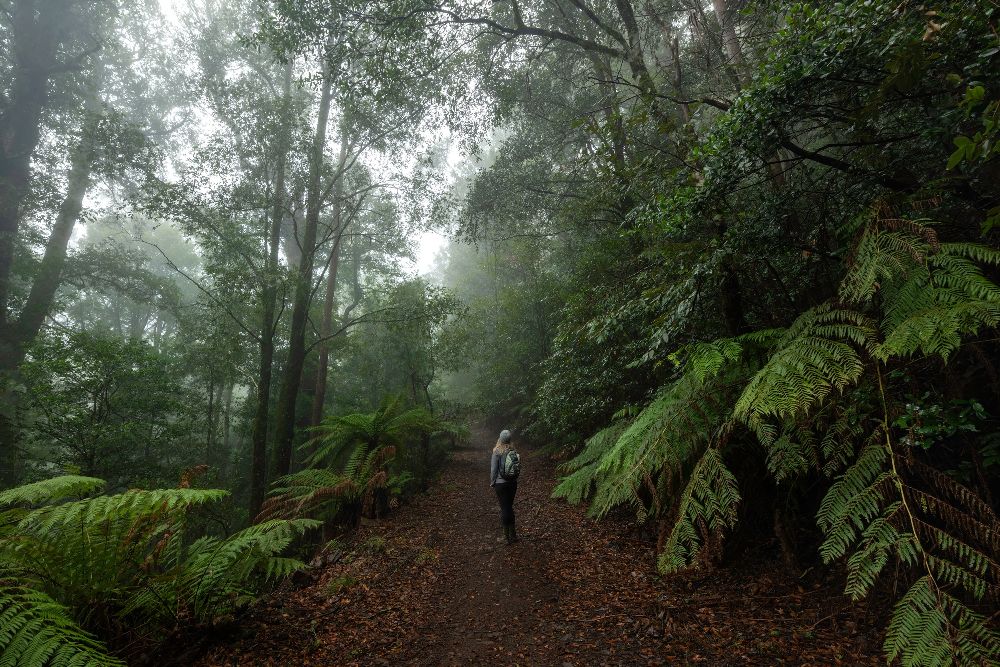Hiking and Bushwalking
Hiking and bushwalking are outdoor activities that involve walking through natural environments, such as forests, mountains, and wilderness areas. These activities offer a range of physical, mental, and social benefits.
There are local walking trails including:
We are not too far from the Barrnington Tops
See Barrington Tops

Here are some tips for hiking and bushwalking:
Preparation:
Research the Trail:
- Before starting a hike, research the trail you plan to take. Know the distance, difficulty level, and any potential hazards.
Check Weather Conditions:
- Be aware of the weather forecast for the day of your hike. Dress accordingly and be prepared for changing conditions.
Tell Someone Your Plans:
- Inform someone about your hiking plans, including the trail you'll be on and your expected return time. This is a safety precaution in case of emergencies.
Pack Essentials:
- Carry essentials such as water, snacks, a map, compass, first aid kit, and appropriate clothing. The exact items may vary depending on the length and difficulty of the hike.
On the Trail:
Start Early:
- Begin your hike early in the day to allow enough time to complete it before sunset. This also increases the chances of encountering wildlife.
Stay on Marked Trails:
- Stick to marked trails to avoid getting lost. Straying off the path can disturb the environment and increase the risk of accidents.
Follow Leave No Trace Principles:
- Practice Leave No Trace by minimizing your impact on the environment. Pack out all trash, avoid disturbing wildlife, and stay on designated paths.
Respect Wildlife:
- Observe wildlife from a distance and avoid feeding them. Do not disrupt their natural behavior.
Hydrate and Snack:
- Stay hydrated by drinking water regularly, especially on longer hikes. Pack energy-boosting snacks to maintain your stamina.
Safety:
Know Your Limits:
- Be aware of your physical fitness and hiking abilities. Choose trails that match your experience level.
Emergency Preparedness:
- Carry a fully charged phone, a whistle, and a basic first aid kit. Familiarize yourself with emergency procedures and contact information for local authorities.
Dress Appropriately:
- Wear sturdy, comfortable hiking boots and appropriate clothing for the weather. Consider layers that can be added or removed.
Post-Hike:
Clean Gear:
- After the hike, clean and store your gear properly. This ensures it's ready for your next adventure.
Reflect:
- Take a moment to reflect on the experience. Note any observations, wildlife sightings, or aspects of the trail you enjoyed.
Share Your Experience:
- Share your hiking experience with friends, family, or online communities. This can inspire others and provide valuable insights for fellow hikers.
Whether you're a beginner or an experienced hiker, these tips can help enhance your hiking and bushwalking experiences while promoting safety and environmental stewardship.
